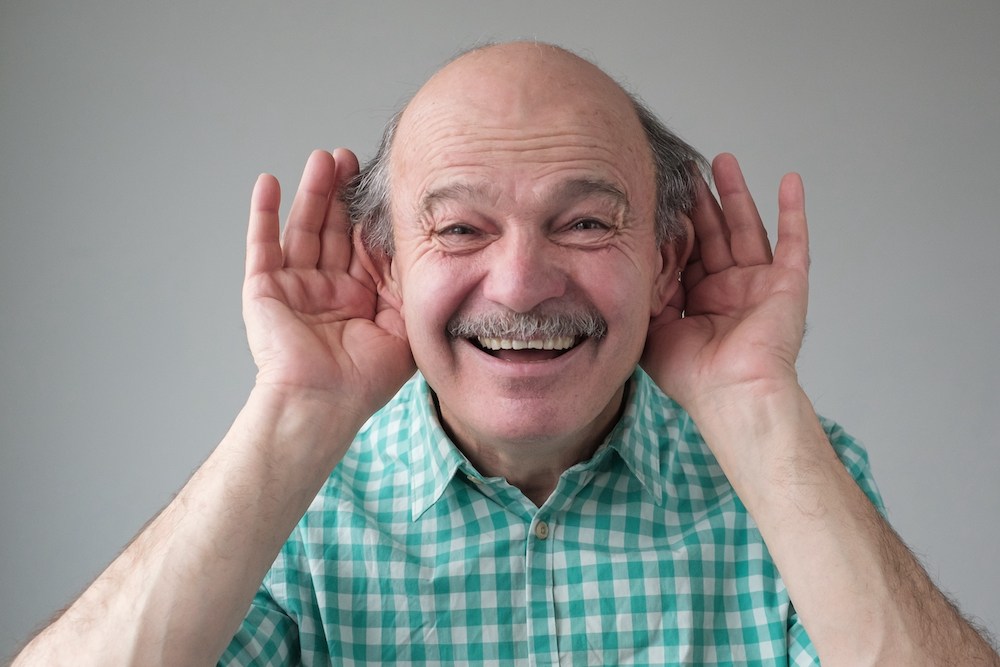The Connection Between Hearing Loss and Physical Activity
When thinking about ways to support your hearing health, exercise might

By: admin | August 28, 2024
Hearing loss can sometimes make social events feel overwhelming. The mix of ambient noise, multiple conversations and the general hustle and bustle can make communication seem like a challenging task. However, there are strategies that can make these situations less intimidating and more enjoyable. Staying socially active is crucial to your overall well-being and quality of life. While hearing loss may present some challenges, they can be overcome with the right approach. This article aims to provide you with practical tips to enhance your social experiences despite any hearing difficulties.
Social events can present significant challenges for individuals with hearing loss due to the dynamic and often chaotic nature of these environments. Unlike a quiet, controlled setting where one can easily focus on a single speaker and pick up visual cues, social gatherings are often filled with a multitude of competing sounds and conversations.
In these settings, background noise and multiple overlapping conversations create an auditory environment that can be difficult to manage. The noise from other people talking, combined with ambient sounds from the surroundings, makes it hard to isolate and focus on a specific conversation. Hard surfaces and open spaces can also contribute to sound reverberation, further complicating the ability to hear clearly.
This constant competition for auditory attention can be exhausting. Individuals with hearing loss may find themselves straining to catch parts of conversations and worrying about mishearing or misunderstanding what is being said. This added cognitive effort can lead to fatigue and increased stress, as they work harder to stay engaged and follow the flow of discussion.
Socializing offers numerous mental health benefits that extend far beyond mere enjoyment. Being actively engaged in social activities is crucial for maintaining emotional and cognitive well-being. When you participate in social interactions, you stimulate your mind and keep it active, which can help preserve cognitive function and mental sharpness. Engaging in conversations and group activities challenges your brain, encourages critical thinking and promotes overall mental agility.
Additionally, social connections foster a strong sense of belonging and community. When you are part of a social group, whether it’s through friends, family or shared interests, you develop a support network that can provide emotional comfort and stability. This sense of connection is vital for maintaining mental health, as it helps counter feelings of isolation and loneliness.
Socializing also plays a significant role in combating depression and anxiety. Positive interactions with others can uplift your mood, offer new perspectives and provide emotional support during challenging times. Having meaningful connections helps to build resilience and can act as a buffer against stress and negative emotions.
For individuals with hearing loss, maintaining an active social life can present challenges, but it’s important to remember that hearing loss does not have to be a barrier to meaningful social engagement. By utilizing effective strategies and tools, like hearing aids and assistive listening devices, you can overcome obstacles and continue to enjoy fulfilling interactions with others. Embracing these solutions helps ensure that your social connections remain strong and that you reap the mental health benefits of staying socially active.
Background noise can be a tricky obstacle when trying to engage in conversations. Much like a gusty wind can scatter leaves, background noise can scatter your focus, making it difficult to understand what’s being said.
Imagine if you could control the gusty wind, or even better, if you could choose which leaves to focus on. Certain strategies and tools can help you manage background noise and improve your conversational experience. For instance, using assistive listening devices can help filter out unwanted noise and amplify the sounds you want to hear.
Your audiologist is always there to support you and provide advice on managing background noise effectively. They are there to ensure you don’t miss out on life’s precious moments!
In group conversations, positioning can play a key role in how well you can communicate. Just like finding the perfect spot at a concert to enjoy the music, placing yourself strategically in a group setting can enhance your communication experience.
Choose a location where you can clearly see everyone’s faces. This will allow you to pick up on visual cues and lip movements that complement verbal communication. If possible, sit with your back against a wall to reduce background noise. Effective communication isn’t just about hearing; it’s also about making use of all available cues to understand what’s being said.
Just like maintaining regular visits to the dentist for optimal oral health, regular check-ups with your audiologist are essential for maintaining optimal auditory health. These check-ups allow for early detection and management of any changes in your hearing abilities over time. They also provide an opportunity for you to discuss any challenges you might be facing and explore potential solutions like updating your hearing aids or trying new assistive listening devices.
Hearing aids are more than just a tool for amplifying sound. They can significantly enhance your ability to engage in meaningful interactions by making it easier to focus on the conversation at hand.
Hearing aids can help filter out background noise, allowing you to concentrate on the person speaking. This is especially beneficial in noisy environments where multiple conversations may be happening at once. Additionally, modern hearing aids come equipped with features that can adapt to different listening situations, further enhancing your communication experience. Thus, understanding and utilizing your hearing aids effectively can truly transform your social interactions and overall quality of life.
In the journey of living with hearing loss, one key aspect is learning how to effectively express your communication needs to others. This might seem challenging at first, but open communication is the cornerstone of understanding and empathy.
Communicating effectively with others when dealing with hearing loss can sometimes feel like learning a new language. But once mastered, it can greatly enhance your overall quality of life.
Big events like concerts, conferences and parties can be a lot of fun, but they can also present unique challenges for individuals with hearing loss. The loud music, multiple conversations and large crowds can sometimes make it difficult to fully enjoy these events. But there are strategies you can employ to make these experiences more enjoyable!
Consider using assistive listening devices that can help filter out background noise and amplify the sounds you want to hear. Just like using binoculars at a sports game helps you focus on the action, these devices help you focus on important sounds amidst the noise. Also, positioning yourself strategically – like finding a spot away from speakers at a concert or sitting in the front row at a conference – can greatly enhance your experience. Your audiologist is always there to provide advice tailored to your specific needs and situations!
Does the thought of missing out on meaningful conversations at social gatherings due to hearing loss make you feel apprehensive? Are you seeking ways to enrich your social experiences despite this challenge?
Hearing loss doesn’t have to be a roadblock in your social life. With a few practical measures, you can continue to enjoy and participate in lively conversations at gatherings. For instance, using visual cues like reading lips or observing body language can significantly improve communication. It’s similar to watching a movie with subtitles – even if you miss a few words, the overall context is still clear.
Don’t underestimate the power of technology in enhancing your social experiences. Assistive listening devices can act like personal sound filters at noisy events, helping you focus on what matters most – the conversation at hand. They work much like noise-canceling headphones, allowing you to tune into the sounds you want to hear while tuning out background noise. With these practical measures and a positive mindset, hearing loss won’t keep you from enjoying enriching social experiences!
As you continue to navigate social events with hearing loss, remember that it’s not a journey you have to undertake alone. Our team of audiologists at Quality Hearing Aid Center is here to guide and support you every step of the way. From providing personalized advice on managing background noise, exploring assistive listening devices tailored to your needs or even discussing strategies for better communication in groups – we’re here for you.
If there are any questions lingering after reading this article or if there’s a specific challenge that wasn’t addressed, don’t hesitate to reach out. We have multiple locations available for your convenience, just reach out to our Southfield, Novi, Livonia and St. Clair Shores, MI offices at: (248) 430-8791 .
Living with hearing loss doesn’t mean missing out on life’s precious moments; it just means finding new ways to experience them fully. With the right approach and the right support from our team at Quality Hearing Aid Center, we believe that you can enjoy meaningful connections and vibrant social experiences despite any hearing difficulties.

When thinking about ways to support your hearing health, exercise might
By: admin | October 20, 2025

Taking your child for their first hearing test can feel overwhelming for
By: admin | July 29, 2025

Hearing loss affects how you communicate with the people closest to you,
By: admin | June 20, 2025
